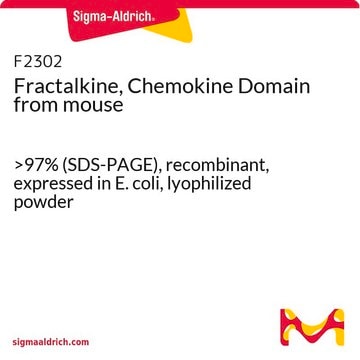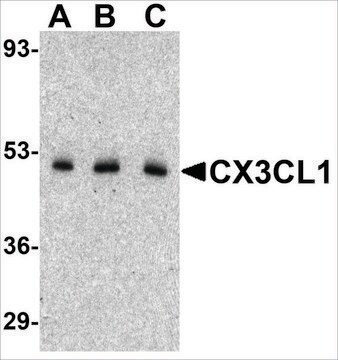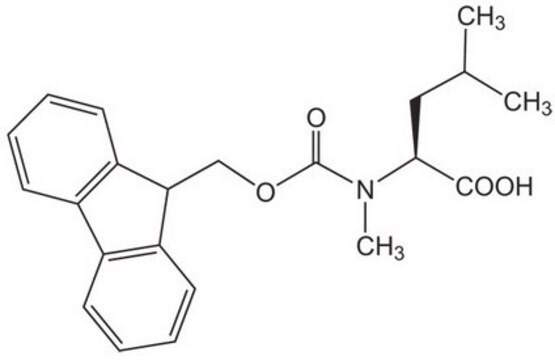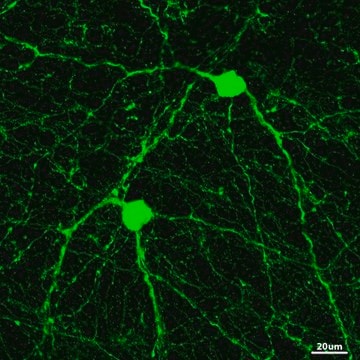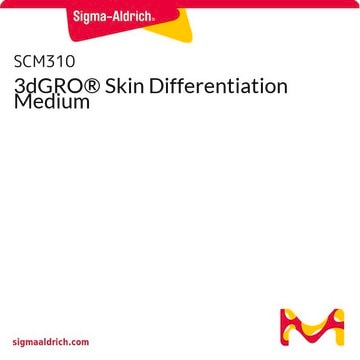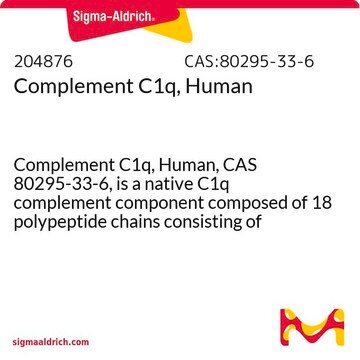F135
Fractalkine, Extracellular Domain human
≥97% (SDS-PAGE), recombinant, expressed in NSO cells, suitable for cell culture, lyophilized powder
Synonyme(s) :
CX3CL-1, Neurotactin
About This Item
Produits recommandés
Source biologique
human
Niveau de qualité
Produit recombinant
expressed in NSO cells
Pureté
≥97% (SDS-PAGE)
Forme
lyophilized powder
Puissance
22.62 ng/mL
Poids mol.
~90 kDa
Conditionnement
pkg of 25 μg
Conditions de stockage
avoid repeated freeze/thaw cycles
Technique(s)
cell culture | mammalian: suitable
Impuretés
endotoxin, tested
Numéro d'accès UniProt
Température de stockage
−20°C
Informations sur le gène
human ... CX3CL1(6376)
Description générale
Actions biochimiques/physiologiques
Forme physique
Remarque sur l'analyse
Code de la classe de stockage
11 - Combustible Solids
Classe de danger pour l'eau (WGK)
WGK 3
Point d'éclair (°F)
Not applicable
Point d'éclair (°C)
Not applicable
Équipement de protection individuelle
Eyeshields, Gloves, type N95 (US)
Certificats d'analyse (COA)
Recherchez un Certificats d'analyse (COA) en saisissant le numéro de lot du produit. Les numéros de lot figurent sur l'étiquette du produit après les mots "Lot" ou "Batch".
Déjà en possession de ce produit ?
Retrouvez la documentation relative aux produits que vous avez récemment achetés dans la Bibliothèque de documents.
Notre équipe de scientifiques dispose d'une expérience dans tous les secteurs de la recherche, notamment en sciences de la vie, science des matériaux, synthèse chimique, chromatographie, analyse et dans de nombreux autres domaines..
Contacter notre Service technique